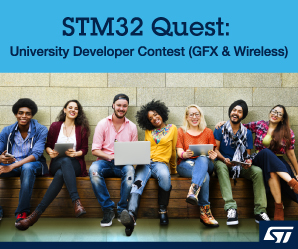[김예지의 인사이트] [인터뷰]아이투 이순열 대표-“로봇 자동화 기반 中企 디지털 전환 도울 것”
기사입력 2023.09.12 15:59
“로봇 자동화 기반 中企 디지털 전환 도울 것”
산업 현장 디지털 전환 교육 및 컨설팅 지원
로봇자동화 도입…작업환경개선·인력난해소
산업 현장 디지털 전환 교육 및 컨설팅 지원
로봇자동화 도입…작업환경개선·인력난해소
[편집자주] 인더스트리 4.0 이후, 산업 현장에서의 디지털 전환은 기업의 경쟁력을 강화하는 필수적 요건으로의 가능성이 확인되고 있다. 대기업이 공장 자동화를 넘어 AI·빅데이터·IoT·클라우드 등 최신 기술을 적용하고 있는 반면, 다수의 중소기업 현장에서는 실제적 도입이 어려운 실정이다. ㈜아이투는 산업 현장에서의 노하우를 기반으로 물가 상승, 인력 부족 등과 같은 어려움을 직격탄으로 맞고 있는 중소기업에 동력을 실어주기 위해 나섰다. 본지는 ㈜아이투 이순열 대표를 만나 중소기업의 디지털 전환을 지원하는 전략과 사례에 대해 들어봤다.
■ 아이투에 대한 소개 부탁드린다
㈜아이투는 2021년 8월에 설립된 산업 지능화를 표방하는 전문 회사다.
주요 핵심 사업으로 첫 번째는 디지털 신기술을 산업 현장에 적용하기 위해 디지털 전환을 돕는 교육 및 컨설팅을 진행한다. 다음으로 열악한 산업 현장의 작업 환경을 로봇을 기반으로 개선하는 산업용 로봇 시스템 사업이 있다.
중소·중견기업 중심으로 한국이 제조 선진국으로서 한 단계 더 업그레이드될 수 있도록 기여하고자 한다.
■ 정부의 산업 디지털 전환 주요 정책의 골자는
대다수의 중소기업은 디지털 전환의 경험이 적기 때문에 무엇을 어떻게 시작해야 될지를 잘 모르는 경우가 많다.
이를 위해 정부에서는 중소기업이 디지털 전환을 하기 위해 필요한 사전 교육 지원을 지원한다. 다양한 기업들의 상황과 업종에 따라 고객 맞춤형 디지털 전환을 체계적으로 할 수 있는 전략 수립 및 실행 계획을 선행해서 지원해주는 컨설팅과 관련한 제도가 만들어지고 있다.
지난해 발효된 디지털 전환 촉진법에 의해 예산 효율적인 방안을 마련할 수 있기 때문에 기업들은 그런 정부 지원 제도를 활용하면 많은 효과를 거둘 수 있을 것으로 예상한다.
특히 지난해까지 제조업에서는 스마트 공장 지원에 집중했었다면, 내년부터는 제조 현장을 포함해 이외의 영업·마케팅 영역, 구매·물류, 재무회계 등 기업 활동 전반에 디지털 기술을 적용함으로써 부가가치를 높이는 선진국형 비즈니스 모델을 표방할 것으로 예상된다. 해당 분야의 예산도 대폭 늘어나고 있다.
■ 중소기업이 디지털 전환할 수 있는 방안은
미래형 기업을 위한 주요 디지털 기술에는 빅데이터, 클라우드, AI, 엣지 컴퓨팅, 사물 인터넷(IoT) 등이 있다.
중소기업은 디지털 기술의 장점은 인지하나, 돈도 부족하고 인력도 부족한 실정이다. 그렇기 때문에 디지털 전환의 방법을 찾는 것부터 외부의 전문가의 도움을 필요할 때 받아야 한다.
예컨대 내부에 전문 인력을 둘 수 있는 대기업과 달리 중소기업들은 고급 인력들을 내부에 두지 못하기 때문에 아웃소싱 형태를 채택한다.
컴퓨팅 자원에 대해서도 내부에 구축할 경우, 예산과 유지 비용이 많이 들기 때문에 요즘은 구독 형태(Software-as-a-Service, SaaS)로 변하고 있다. 중소기업은 좋은 기능 및 기술을 빌려 쓸 수 있어 효과적일 것으로 예상한다.
아이투는 이 과정에서 산업 전반에 대한 지능화 전문성을 산업체의 기업들에게 교육과 컨설팅, 또한 솔루션을 비용 효율적으로 제공하는 역할을 수행한다.
■ 아이투가 로봇 솔루션을 제공한다고 들었다. 어떤 사업인가
최근 제조 현장에서의 어려움은 인력을 구하는 것이다. 이제 숙련된 인력들은 은퇴 시기를 맞았지만, 제조업에는 숙련된 분들의 경험을 전수받을 젊은 인재들의 유입이 어렵다. 3D 환경으로 불릴 만큼 제조 현장의 환경도 위험하고 열악하다.
결국 제조 분야에서 사람의 의존도를 낮추는 방안으로 가급적이면 힘들고 위험한 부분은 로봇으로 전환하는 것이 필요하다.
대기업은 로봇을 많이 도입하기 시작해 자동화하기 쉬운 부분에 대해서는 자체 로봇으로 이미 자동화를 이룬 바 있다. 그런데 대기업에서 로봇을 도입하기 힘든 부분은 중소기업에게 외주를 준다. 중소기업에서는 자동화하기 힘든 것들이 많아 1차, 2차, 3차 벤더로 내려갈수록 사람의 의존도가 높아지게 된다.
아이투는 직원들의 로봇 자동화 솔루션 경험을 바탕으로 중소기업에게 맞춤형 로봇을 제공한다. 로봇 한 대 도입 시 평균 규모가 대략 1억 내외라면, 중소기업 대상의 아이투의 사업은 규모가 작더라도 소수의 인력이 고객 맞춤형으로 로봇 도입을 돕는 점을 경쟁력으로 삼고 있다.
중소기업은 로봇으로 전환이 부분이 가능한 부분을 판단하기 어렵기 때문에 전문가가 현장을 둘러보고 로봇으로 대처가 가능한 부분과 어려운 부분을 찾아 합리적인 비용으로 할 수 있는 것부터 단계적으로 지원한다.
적은 비용으로 빠른 투자 회수가 될 수 있는 영역을 찾아 아이디어를 내는 사전 개념 설계를 한다. 다음으로 로봇을 도입했을 때 어떤 효과를 낼 수 있도록 진단 및 사전 검증을 하는 엔지니어링 컨설팅을 제공한다. 이는 실제 로봇 도입 시 실패의 위험을 사전에 줄여줄 수 있다.
이를 바탕으로 정부 지원 예산을 확보할 수 있도록 사업 계획서 단계에서의 도움도 드리고 있다. 설립 이후 최근 2-3년 동안 정부 로봇 구축 지원 사업을 신청했을 때 70~80%가 정부 지원을 이제 받아서 투자 회수 기간은 6개월 정도의 사업을 구축한 사례가 있다.
■ 로봇 도입 주요 사례가 있다면
여러 사례 중에 하나는 자동차 부품 제조 2차 협력업체가 있다. 자동차 부품 용접을 위한 도구 ‘지그’에 물건을 올려놓고 정렬 및 용접하는 과정이 있다. 조립을 위해 부품을 이송할 때 무거운 조립 부품을 옮기는 과정은 재해를 유발하는 기피 업무다.
이때 위험한 공정에 로봇을 도입함으로써 재해가 발생할 수 있는 부분을 대체했다.
주로 식품, 자동차 등 뿌리 업종의 환경은 대부분 열악한 실정이다. 로봇 자동화를 통해 근무 환경이 개선되고, 인력난에서 벗어날 수 있다. 또한 결원이나 추가 야간 작업 등이 발생 시 로봇이 24시간 일하며 대신하는 측면에서 생산성 향상을 달성할 수 있다.
■ 요즘 화두인 협동로봇 시장은 어떻게 보는가
협동로봇도 산업용 로봇의 한 분류다. 협동로봇의 가장 큰 특징은 설치가 간편하고, 안전 기능이 있다는 것이다. 그래서 사람과 로봇이 같은 공간에서 협업할 수 있지만 산업용 로봇에 비해서는 동작이 빠르지 않다.
협동로봇은 사람과 로봇이 적절히 역할을 나눌 수 있는 분야에서 생산성을 달성할 수 있다. 협동로봇을 어떻게 활용하는지에 따라 생산성을 높이고, 작업 위험성을 줄이고, 작업 공간을 효율적으로 활용하는 효과를 발휘할 수 있다. 그런 환경을 찾으면 적절한 적용 사례를 많이 만들 수 있을 것 같다.
■ 아이투의 향후 목표는
산업 환경이 빠르게 변하고 있다. 기술이 나날이 발전하는 가운데, 기술을 다양한 산업 현장에 어떻게 활용할 것인가는 또 다른 문제다.
아이투는 산업 현장 및 디지털 기술에 대한 이해와 경험을 기반으로, 고객에게 로봇, AI 등을 맞춤형으로 제공하도록 교육 및 컨설팅을 지속 제공하겠다. 뿐만 아니라 구축 단계에서 로봇을 맞춤형으로 다양한 환경에서 적절히 활용할 수 있도록 도움을 드릴 예정이다.
특히 향후 AI와 로봇을 접목한 지능형 로봇을 제공할 계획이다. 예컨대 머신 비전과 로봇을 융합한다. 로봇이 단순 반복하는 동작뿐만 아니라 사람처럼 판단하고 인지하는 융합 기술을 다양한 환경에서 활용할 방법을 제시할 계획이다.
디지털 기술과 제조 응용 기술을 융합하는 데 집중하고, 디지털 전환을 위한 노하우를 계속 만들어 나가면 우리나라가 제조업에서 또 한 단계 성장하고, 재도약할 수 있는 기회가 될 것이라고 저는 생각한다.
많이 본 뉴스
[열린보도원칙] 당 매체는 독자와 취재원 등 뉴스이용자의 권리 보장을 위해 반론이나 정정보도, 추후보도를 요청할 수 있는 창구를 열어두고 있음을 알려드립니다.
고충처리인 장은성 070-4699-5321 , news@e4ds.com






